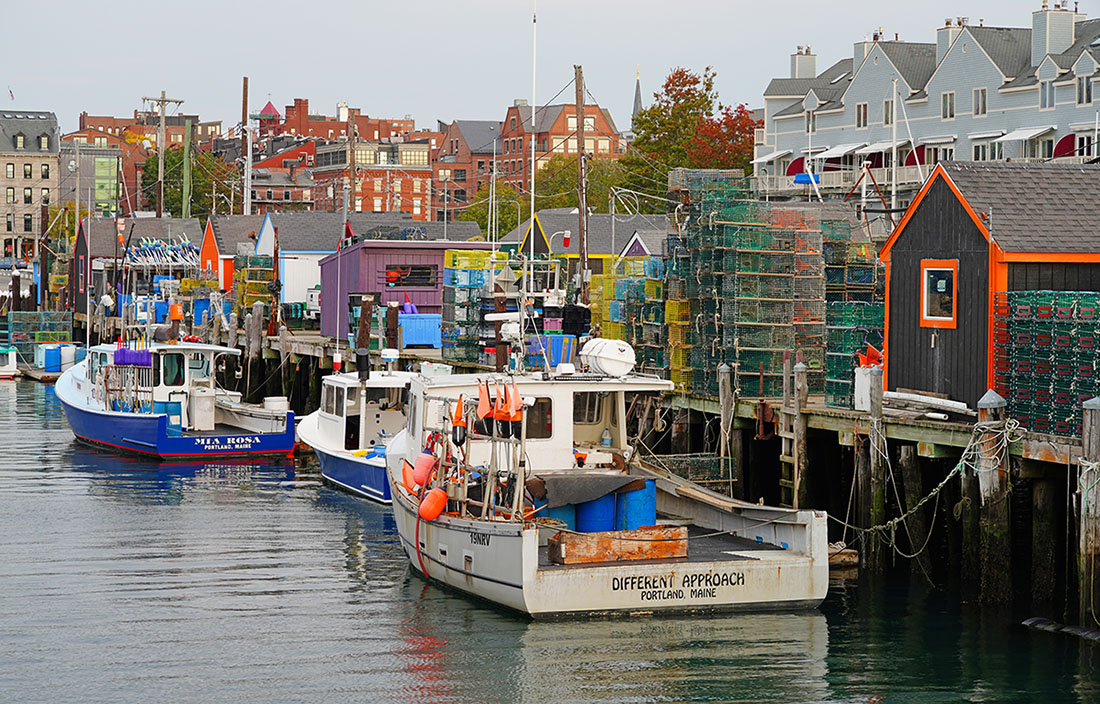The governments of the U.S. states of Maine and Rhode Island are providing grant funding to help promote and market the states’ seafood – adding to growing efforts to create marketing bodies promoting seafood consumption.
A grant from the Maine Department of Economic and Community Development’s Domestic Trade Grant Program – which was funded by the Maine Jobs & Recovery Plan signed by Maine Governor Janet Mills and the American Rescue Plan Act signed by U.S. President Joe Biden – will help establish a new Maine Seafood Promotional Council. The council, which is being led by FocusMaine and guided by input from the seafood industry, recently launched and is gearing up for a two-year pilot phase, FocusMaine said in a press release.
“With the rising demand for locally grown seafood, we need the expertise that has been passed and grown over many generations, as well as the new expertise emerging from a more active aquaculture community, to harness the potential of Maine’s seafood industry,” FocusMaine Co-Founder, Co-Chair, and President Andrea Cianchette Maker said. “The Maine Seafood Promotional Council will establish a place for our fishermen and aquaculturists to strengthen their businesses and create greater impacts in their coastal communities.”
FocusMaine said that the new initiative is a “direct outcome” of recommendations from the Roadmap for the Future of Maine’s Seafood Economy. That roadmap was created by the Seafood Economic Accelerator for Maine, a program funded by the U.S. Economic Development Administration, which outlined the state of Maine’s marine economy.
The roadmap, unveiled at the 49th annual Maine Fishermen’s Forum, outlined multiple goals for Maine’s marine industries: growing the overall value of the industry by 10 percent by 2030; growing employment in the sector by 1,000 employees by 2030; increasing financial investment to support infrastructure, available capital, market development, and research and development; maintaining Maine’s working waterfront and addressing potential capacity issues; and enhancing the sector’s ability to respond to both the challenges and the opportunities presented by climate change.
“A wide range of jobs and careers are available in the marine living resource economy – from entry-level jobs working on aquaculture farms and processing lines to careers requiring more education and training such as marine scientists and operations managers,” the report said. “However, the marine living resource workforce in Maine faces various challenges, including seasonality, changing regulations, market demand, and environmental factors.”
During the new promotional council’s two-year trial period, it will host events to raise awareness about seafood from Maine, work with the Maine Department of Marine Resources to leverage some of the assets for the industry created during the pandemic like the Seafood from Maine website, create an industry-led advisory board, create governance mechanisms for the council, and seek more sustainable ongoing funding.
FocusMaine said the new council will be complementary to the Maine Lobster Marketing Collaborative, an industry-funded initiative that promotes the Maine lobster brand.
“Maine’s seafood industry is composed of many small businesses,” FocusMaine Program Director Leo Waterston said in a release. “We wanted to bring these disparate groups together and develop an economic roadmap for the future – one that would build on the industry’s heritage while leveraging science and technology to address today’s problems, including climate change.”
Rhode Island's state government has also recently granted money to seafood marketing efforts. As part of the Local Agriculture and Seafood Act (LASA) Grants Program, the Rhode Island Department of Environmental Management Division of Agriculture is awarding up to USD 650,000 (EUR 600,000) in grants to support the growth, development, and marketing of local seafood and food in the state.
Established in 2012, each year, a LASA Advisory Committee sets priorities for grant funding, which is announced by the state’s governor. This year, more than 40 farmers, fishers, and specialty food producers will be granted up to USD 20,000 (EUR 18,500) each.
The state efforts could soon be boosted by the efforts of the National Seafood Council Task Force – an assembly of leaders in the seafood industry working to create a National Seafood Council to create a National Seafood Promotion Campaign. The idea of resurrecting a national seafood marketing effort was first floated at a 2019 Marine Fisheries Advisory Committee panel hearing, and since that time, the U.S. senate has passed spending budgets granting funding to NOAA to detail how to create a council.
Those efforts are ongoing, and the 2024 National Seafood Council Task Force has 35 members including companies like High Liner Foods, Slade Gorton, Cooke, Pacific Seafood Group, and Riverence Provisions.








